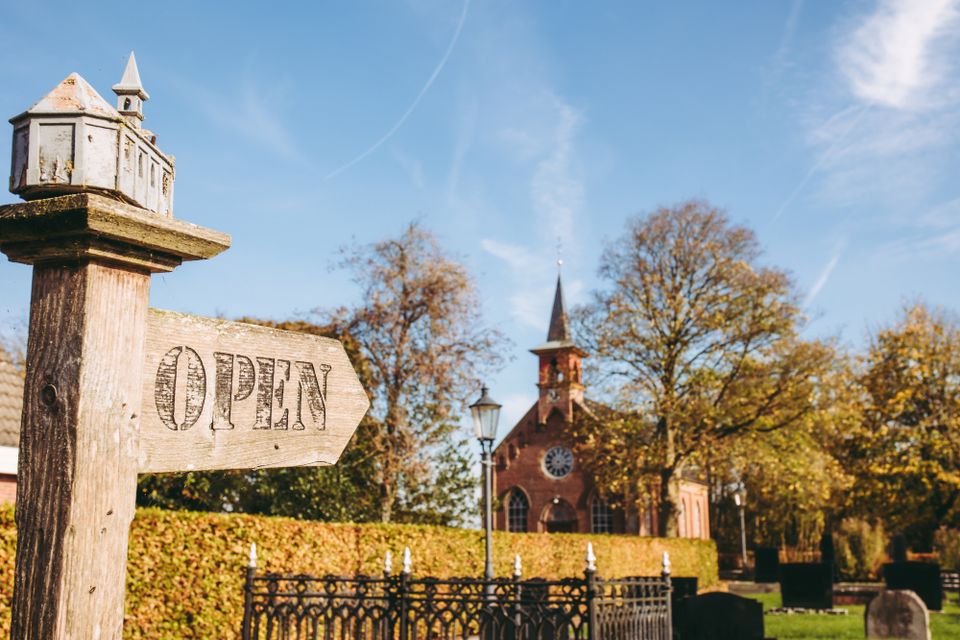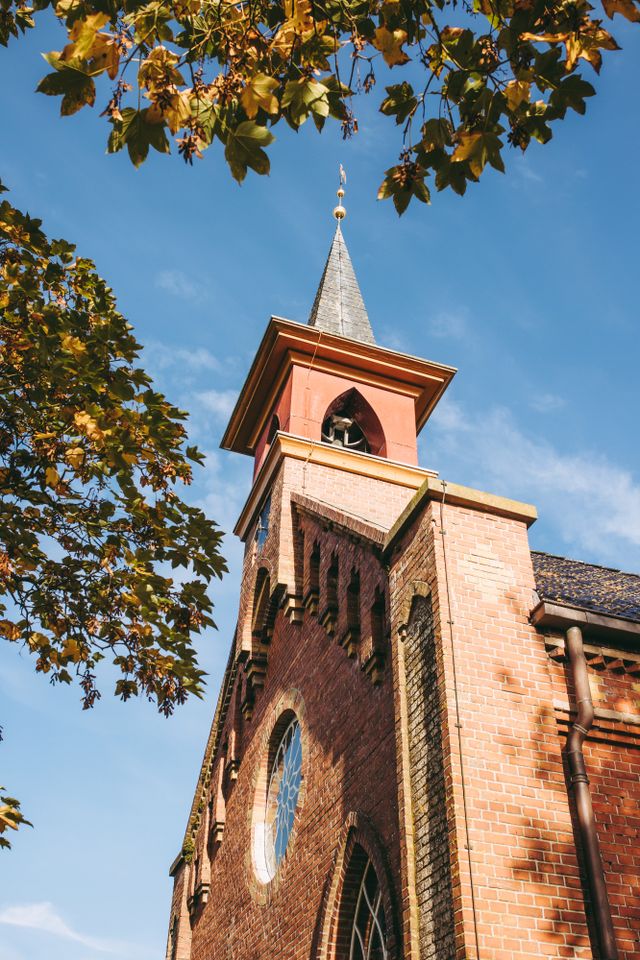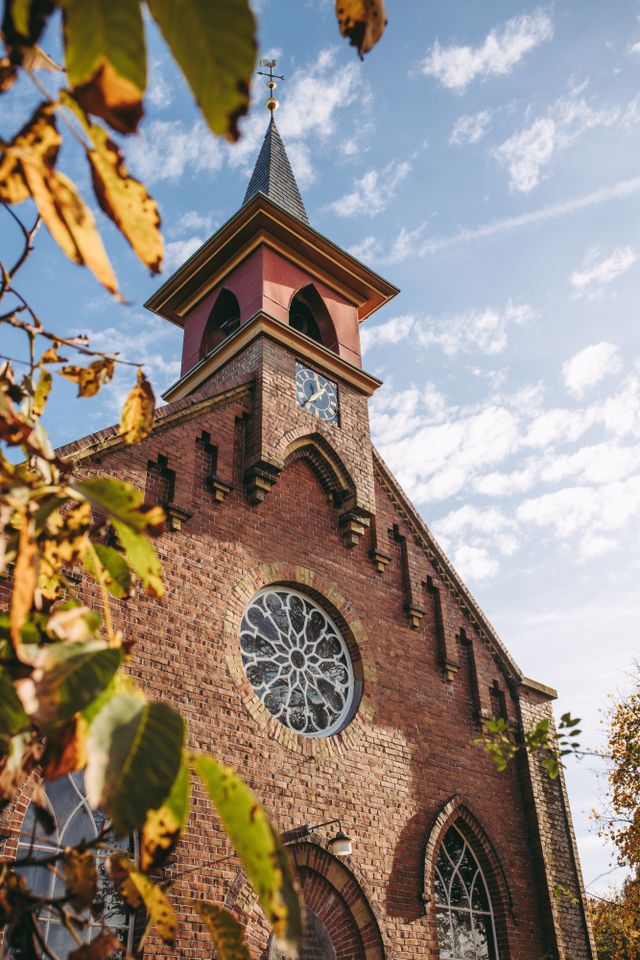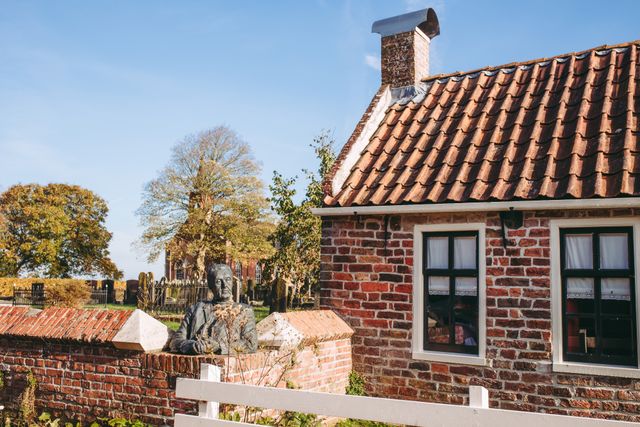
Church Rottum
The church is located at the highest point of the artificial mound (5 meters above sea level). The church is built in 1889 on the foundations of the old abbey church. The church is open for visitors all days of the week, free of charge.
Take a look
The exhibitions focus on modern painting, photography, textile and ceramics. The church is open for visitors all days of the week, free of charge.
It all began with Christianity when the apostle Frisian Liudger visited Rottum in 800 AD. He brought the Christion gospel to the local pagan infidels. To save their mortal souls the converted locals donated their possessions and properties to the Catholic Church. In 1200 the Catholic Church constructed a Benedictine monastery to manage their vast possessions in Rottum and surroundings. The monastery was devoted to martyr Saint Juliana. The first time the village of Rottum was mentioned, was in the 13th century list of possessions of the Benedictine Juliana Monastery.
In 1594 the Province of Gronin…
The exhibitions focus on modern painting, photography, textile and ceramics. The church is open for visitors all days of the week, free of charge.
It all began with Christianity when the apostle Frisian Liudger visited Rottum in 800 AD. He brought the Christion gospel to the local pagan infidels. To save their mortal souls the converted locals donated their possessions and properties to the Catholic Church. In 1200 the Catholic Church constructed a Benedictine monastery to manage their vast possessions in Rottum and surroundings. The monastery was devoted to martyr Saint Juliana. The first time the village of Rottum was mentioned, was in the 13th century list of possessions of the Benedictine Juliana Monastery.
In 1594 the Province of Groningen converted from the Catholic belief to the Protestant teachings. Most of the Monastery was abandoned. The bricks were used for other purposes. But the old Church was now devoted to the Protestant services. Three elements in the present village church date back from the time of the monastery church: the tower hour, the pulpit and the organ.
When the elders built the new village church they did not use the bricks from the old monastery. They bought the bricks from the local brick factory Ceres: you can still see the old chimneys of this old factory when outside the church you look to the south.
Look at the attractive brickwork at the outside of the church. You may see a fascinating pattern of red, yellow and dark bricks. The interior of this simple village church is characterized by the wooden benches, two cast iron pillars supporting the organ, eight arched windows, and the plastered ceiling.
The village church is open to the public all days of the week, free of charge.
There are changing exhibitions of paintings, photography, etc.






